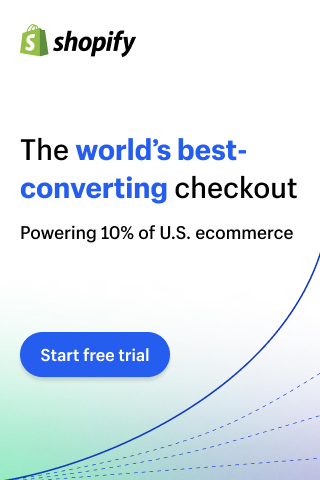The pressing issue of climate change, and growing customer awareness around the brands they buy from and the business models they use means that sustainability will become more and more important for ecommerce.
Many brands have been talking up their sustainability credentials, setting targets for reduction of emissions, using fewer plastics, and using recycled materials.
There’s some cynicism around the climate pledges of brands like Amazon, which have such a huge impact on the environment through their activities, as well as fast fashion brands whose very business models encourage over-consumption.
However, it’s important that all retailers begin to make progress towards more sustainable business models.
It’s something which is important for the future, but also something that customers will begin to demand more and more. A Forbes survey in 2019 found that 62% of Gen Z respondents prefer to buy from sustainable brands, while the majority are willing to spend more on sustainable products.
Some brands have built their businesses around sustainable models, considering the environmental impact on their activities, and ensuring that workers and suppliers are paid fairly.
In this article, we’ll look at some of these business models, which hold lessons for less sustainable retailers.
HelloFresh
Hello Fresh has what it claims is a ‘lean and low-waste supply chain’. According to CEO Dominik Richter, Hello Fresh generates 66% less food waste ‘than the average of 12 leading traditional food retailers globally’.
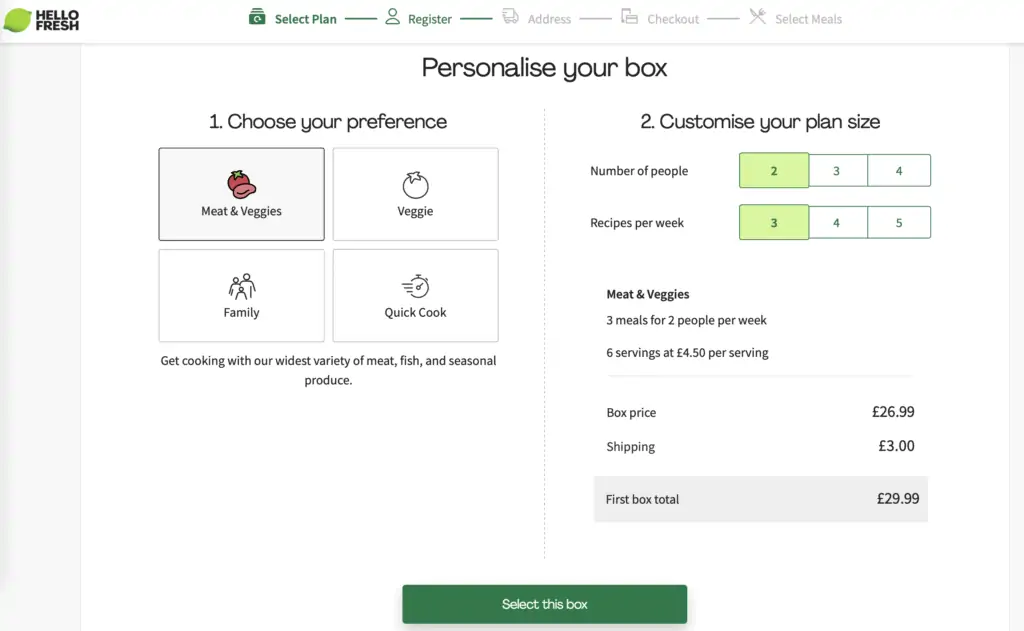
Its meal kits are designed to give people just the quantity they need to make it meal, meaning less food waste to discard compared to the same purchase from a ‘normal’ grocery retailer.
One key factor is the use of customer data for more accurate ordering. Many retailers order based on estimated demand, which means products can be over-ordered and, in the case of grocery products with a limited shelf life, leading to waste from unsold stock.
In the case of Hello Fresh, a weekly ‘dynamic forecasting’ system based on customer orders means that the quantity of food ordered in as close to that required for that week’s customer meals as possible.
There have been criticisms of the company, particularly with regards to packaging but the company claims it has been working to reduce the amount of packaging materials used.
Patagonia
Patagonia was founded in 1973, and sells outdoor apparel, while the brand is built around its sustainable credentials.
Its environmental policies are central to its marketing, and it contributes 1% of each year’s revenue to non-profits that promote environmental conservation and sustainability.
The company has a range of sustainable policies, working to become carbon net neutral by 2025.
One the the most notable policies is Patagonia’s goal of reducing over-consumption as a means to become more sustainable.
To this end, Patagonia aims to produce clothing which lasts a long time, in sharp contrast to the fast fashion brands which encourage high levels of consumption.
It also monitors key metrics around this, such as the proportion of returns that are due to quality issues.
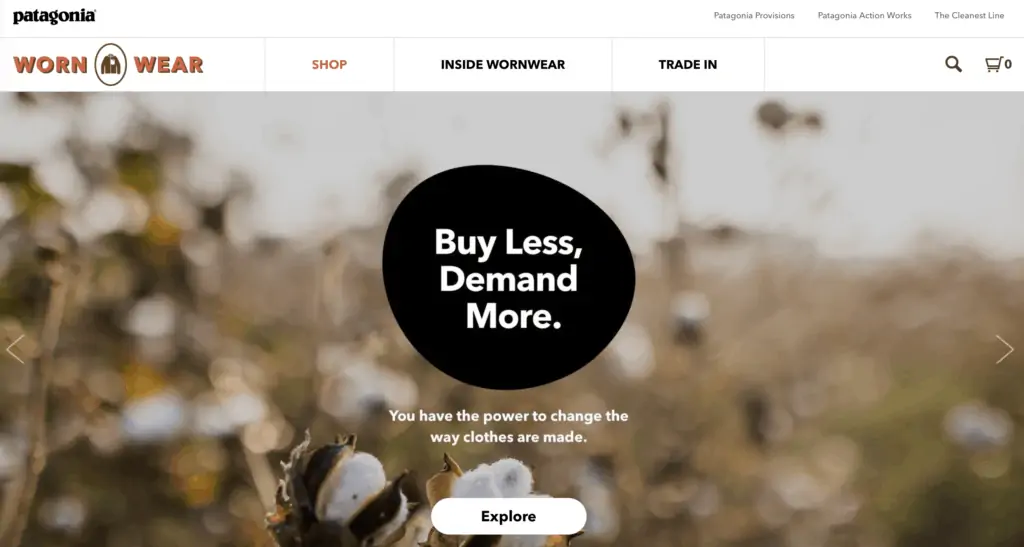
The company also encourages customers to get more use out of products, with repair clinics and advice for fixing clothes to extend their lifetime.
Products are designed to be easily repairable, while the company also has Worn Wear, a site which allows customers to buy and sell used Patagonia clothing.
Veja
Veja is a French brand French fashion brand which makes its products using raw materials sourced from organic farming and ecological agriculture.
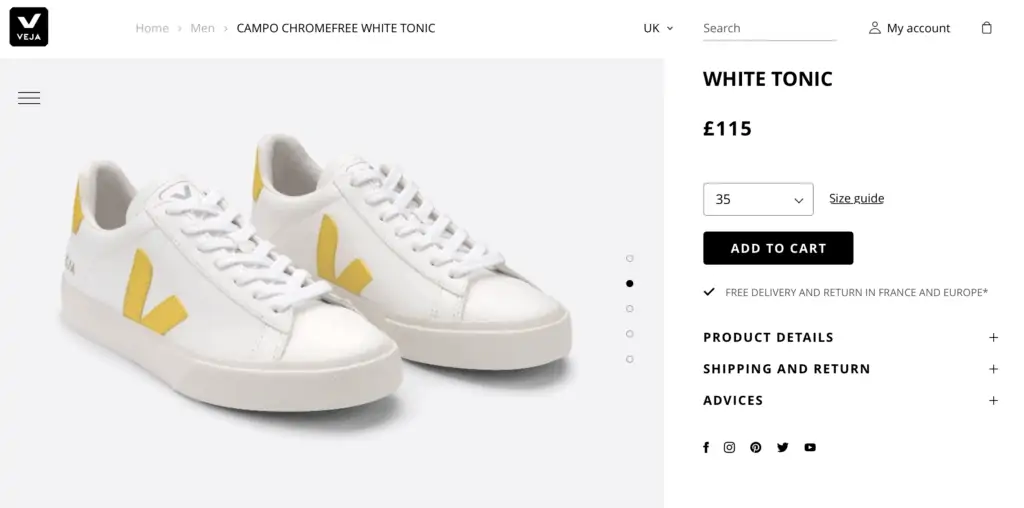
The brand sells more than two million pairs of trainers every year, which are made avoiding the usual plastics which go into most running shoes.
To achieve this, Veja uses recycled cotton and plastics, and other reclaimed materials to minimise the use of petroleum based materials.
Like Patagonia, it also encourages repair and recycling to extend the life of its products and discourage over-consumption. For example, it has opened test hubs where customers can clean and repair their trainers.
Lush
The cosmetics industry has historically been known for less than ethical practices -the use of chemicals and animal testing for example.
Lush, taking its lead from brands like The Body Shop, are at the sustainable end of the industry, with 100% vegetarian, ethnically sourced products, free from any use of animal testing.

The company’s packaging is free of BPA plastics and 100% made from recycled materials, while the Sustainable Lush Fund invests in ethical agricultural projects which then become part of its value chain.
Wolf & Badger
Founded in London back in 2010, Wolf & Badger stocks products from more than 1,000 brands, all of which adhere to the company’s standards on sourcing of materials, product lifespan, working conditions, use of chemicals and more.
The website and the brand’s flagship stores in London and New York provide a platform for a range of sustainable brands to reach an audience of ethical minded customers, and help with marketing and fulfilment.
For customers, Wolf & Badger acts as guarantor to assure then that the products they buy are not only of good quality, but have been made in a sustainable manner.
One interesting feature is the company’s Guarantee Index, which categorises the products it sells according to different sustainably attributes.
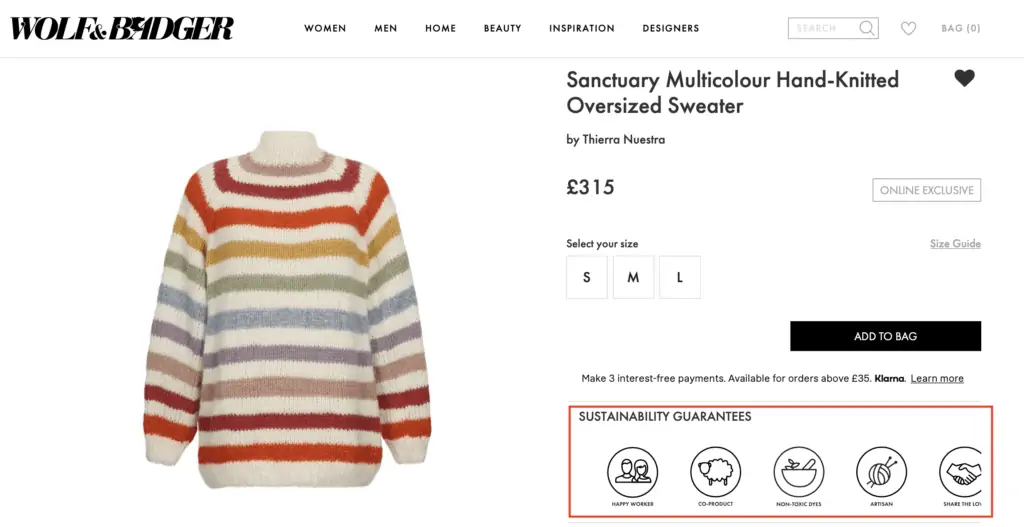
For example, product pages will highlight the fact that the product was made without toxic dyes, or using ethical working practices.
These guarantees help customers choose, and encourage brands selling on the platform to achieve the criteria needed to display these trust marks.
